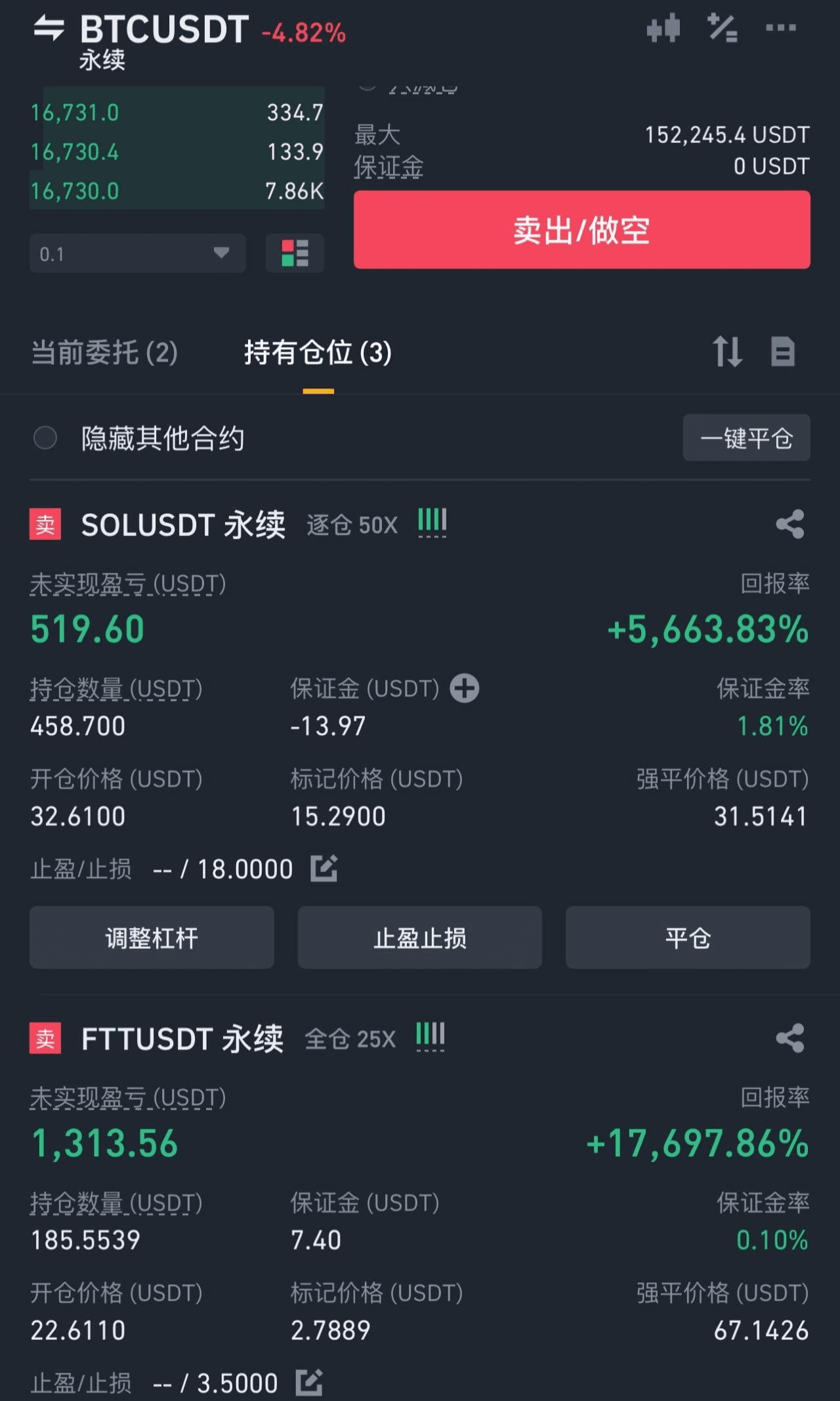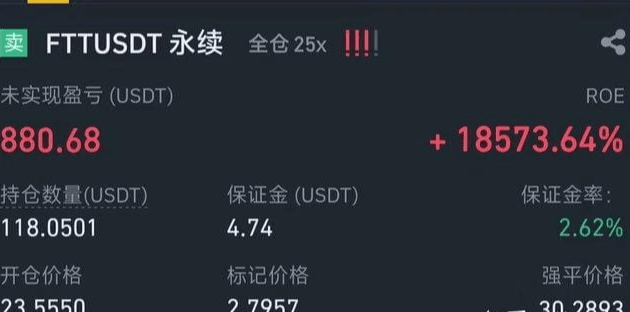As an experienced trader in the cryptocurrency market, I have unknowingly been trading for seven years now. It is indeed not easy to survive in the cryptocurrency market until now! I have been beaten by market makers, experienced many liquidations, felt lost, and countless times hid in dark corners, chain-smoking. This is the price of growth!
Although I have also played in the stock market for many years, there are still many differences between the cryptocurrency market and the stock market. In retrospect, it wasn't that my direction was wrong; I have maintained a high accuracy in grasping direction. The problem is that the cryptocurrency market really amplifies human greed infinitely. Without strong self-control, it is very easy to lose oneself. After all, there's a saying: one day in the cryptocurrency market is like a year in the stock market. In one day, the cryptocurrency market can cover what the stock market might take a year to accomplish!
Today, I will share a summary of my years of trading experience for free, hoping to help everyone. Of course, I will mainly give a general overview here. Depending on the reactions from my fans, if everyone feels it's necessary to elaborate, I will later release three detailed articles to discuss these three points separately. In summary, there are three core points:
First, position management. This is of utmost importance! If you have not yet realized the importance of position management, it means you have not yet left the novice stage. You are still at a purely beginner level! I have previously discussed position management in my articles, explaining how I manage it. If you're interested, you can take a look at that. Of course, I just briefly mentioned it, providing what I think is the simplest, most effective, and easy-to-learn method! It can be said that position management determines how long you can survive in the cryptocurrency market in the future!

Here, let me briefly explain again: before you open a contract, you must have already thought about where to set your stop loss, right? (Don't tell me you haven't thought about where to set your stop loss before opening a contract.) The size of your position depends on where you set your stop loss. Consider this: if this trade hits the stop loss, can you psychologically bear the loss? If you can't bear it, it means your position size is too large, and you need to reduce it! If you can bear it, then it means your position is just right! It's easy to calculate this way; you can figure it out right away. Don't use percentages for your position size; it's really hard to calculate that way. It takes time; often, opening a trade at a good point is something that happens in an instant!
Second, develop good trading habits, which includes several points:
1. Always set a stop loss when opening a trade; this is an unbreakable discipline in contract trading. If you can't follow this rule, I advise you to just give your money to a market maker to spare everyone the torment! Never have the delusion that you can just hold a position through it. If you manage to hold through nine out of ten times, and you feel proud about it, just one time can wipe you out completely! Such people actually make up the majority!
2. Maintain a good mindset. When trading, never get overly emotional. If you incur a loss, do not rush to recover the lost amount immediately, as frequent operations can be extremely dangerous. I've seen too many people incur a loss, then become emotional and try to recover quickly, resulting in a total loss overnight. This goes back to what I mentioned earlier: when you open a position, you should have already thought about where to set your stop loss. In that case, you already know how much you will lose if the stop loss is hit, and this is something you should have considered before opening the position. So if you hit the stop loss, relax your mindset, maintain a good attitude, and look for good opportunities to fight again.
3. Don't be prejudiced; if you understand some technology, that's best. If you don't understand, then you should definitely not be prejudiced. I've encountered too many people like this. Prejudgment: I just think it's going to drop; now it's the market maker deliberately driving the price up to force a short squeeze, and now the main force is strong enough to hold it up. I just believe it's going to rise; I won't believe it won't rise, even if it makes me angry. I just hold onto my position, believing it will definitely rise; with so much good news, how can it not rise? Now it just seems like it's deliberately falling to blow up long positions. This is typical prejudgment; to put it harshly, it's being one-track-minded, particularly stubborn, unwilling to admit defeat. The market changes rapidly; we can't just say, 'I think,' 'I feel,' 'I believe,' 'I am convinced,' etc. When the market changes, we must change our thinking in a timely manner! If we're wrong, we must admit it and stand up straight when getting hit!
Third, when trading contracts, you must pay attention to the risk-reward ratio! Many people have no concept of the risk-reward ratio in their minds. If the first two points are the key factors that ensure your longevity in the cryptocurrency market, then the risk-reward ratio determines whether you can make big money in the cryptocurrency market. Many people trade contracts blindly; they haven't formed a system, and they just go by their feelings, with no safety net, swinging wildly.
As for myself, whether I decide to trade depends on two things.
First, predict through technical analysis. If I am relatively sure about the direction of the market, whether it is going to rise or fall, then I will trade.
Second, although technical analysis may not be very certain, such as being bullish but not very sure, if the current price point is good, predicting that there isn’t much downside potential but a lot of upside potential with a high risk-reward ratio, then it can still be worth trading.
These two can be satisfied with one condition, and of course, it's best if both conditions can be satisfied at the same time. For example, when I trade, I require a starting risk-reward ratio of at least 1:3. To give an example, I did a long position a while ago; from a technical analysis perspective, I wasn't particularly confident, but it was still okay, with a 70% confidence level! However, I saw that the risk-reward ratio was very high, so I went ahead, and when I exited, the risk-reward ratio reached 1:7. In other words, I made seven times my investment.

Then later, when I use the same position to trade other contracts, I can be wrong seven times in a row and not lose my principal. My margin for error has greatly increased. Therefore, my mindset when trading later will be better, and with a better mindset, my trading accuracy will also improve. If among those seven trades, I get even one right, then I've made a profit; if I get two right, I profit even more. Moreover, my market analysis accuracy is still very high.
Therefore, the risk-reward ratio must be emphasized; it is fundamental to whether you can make big money in the cryptocurrency market. Many people do the opposite: they run away after making a little profit and stubbornly endure losses. Even if you are right in direction, you still can't make money. You say you don't lose; who is losing then!
The market starts, and returns double! Follow Cheng Ge and go with the flow, and wealth will naturally come.
Continue to follow: DIA, CFX


